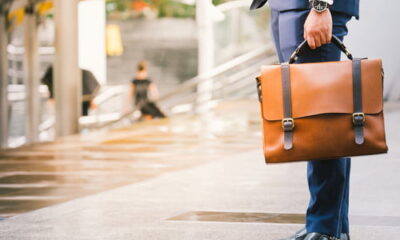

News
Cycling unsafe in UK, says poll
Research by Sustrans shows that over half of the population believe that cycling in urban areas is dangerous, but what will convince people to change their mind and take to two wheels?
More than half the people in the UK fear it is unsafe to cycle on urban roads according to a survey by transport charity Sustrans. Understandable when you consider a rise in cyclist deaths and recent video footage of cyclists involved in road rage incidents.
Research by Sustrans shows that over half of the population believe that cycling in urban areas is dangerous, but what will convince people to change their mind and take to two wheels?
More than half the people in the UK fear it is unsafe to cycle on urban roads according to a survey by transport charity Sustrans. Understandable when you consider a rise in cyclist deaths and recent video footage of cyclists involved in road rage incidents.
The research was released in anticipation of a parliament debate on cycling safety on Thursday, February 23. The discussion on safety for cyclists has also been prompted by the Cities Fit For Cycling campaign organised by The Times.
Malcolm Shepherd, chief executive for Sustrans, says, “This is yet another wake-up call for politicians who must act now to save lives and take the fear out of everyday journeys.
“Ministers must invest in making our streets safer for cyclists, pedestrians and drivers … People shouldn’t have to feel they’re taking a risk when they travel on two wheels in our towns and cities”.
According to Sustrans’ survey, 70% of respondents want residential speed limits to drop to 20mph.
The number of British road deaths has dropped overall, but those on bikes buck the trend. The number of cyclists killed on the road in 2010 rose for the third year running to 111. However, progress has been made since the dangerous 1980s.
Richard Hebditch, director of the Campaign for Better Transport, said, “There is a perception that cycling is dangerous, but that’s not the same thing”.
He added, “Accident rates for cyclists are actually pretty low and the benefits of cycling far outweigh the dangers”.
Blue & Green Tomorrow previously wrote about cycling in the Netherlands. Although cycling culture is now synonymous with the country, it took a long time to establish. A quarter of all journeys in the Netherlands are made by bike, but instead of cycles and cars sharing the road, there are strict segregated lanes and zones for cyclists.
One major issue is intolerance of cyclists. An interim report called Understanding Walking and Cycling, said “Many people barely recognise the bicycle as a legitimate mode of transport; it is either a toy for children or a vehicle fit for the poor and/or strange”.
A particularly violent example of intolerance was demonstrated in a recent video of a driver using his bus as a weapon. The bus driver was sentenced to 17 months in prison. The judge said the driver used his bus to “bully and intimidate”, which is putting it rather mildly.
Along with the rise in violence is a rise in the number of cyclists wearing helmet cameras to capture how drivers react to their presence on the roads. The hope is to engage drivers with the cyclist point of view and motivate empathy.
Cycling is healthy, good for the environment and economical to boot. As Hebditch explains, “Transport is the fastest growing source of climate change gases in the UK … Excessive traffic is creating a noisy, unsafe, unfriendly and unhealthy society.
“Car dependency damages communities, affects our quality of life and has massive environmental consequences. Whereas cycling and walking are far more sustainable ways of travelling that require very little use of the planet’s resources and are good for our health”.
Any government action that provides stronger supporting infrastructure to help cyclists and potential cyclists feel safer on the roads is most welcome. At Blue & Green Tomorrow we believe in making all travel as sustainable as possible. Take a look at our travel page to find out more.
Related articles:
Sustainability should be at the heart of transport
Picture source: Patrick Goossens






























